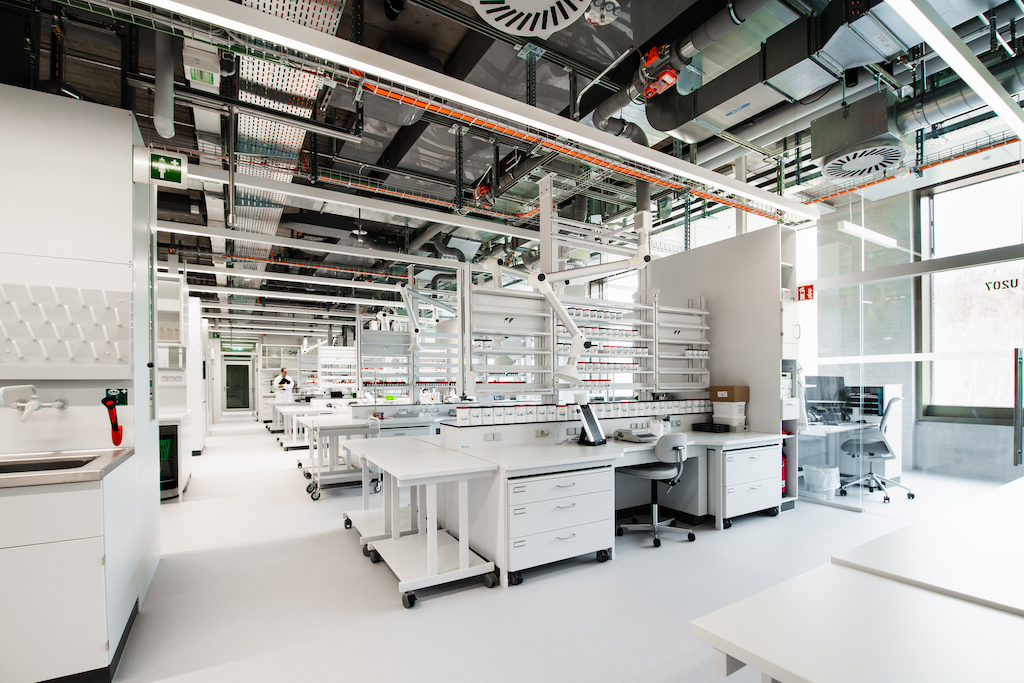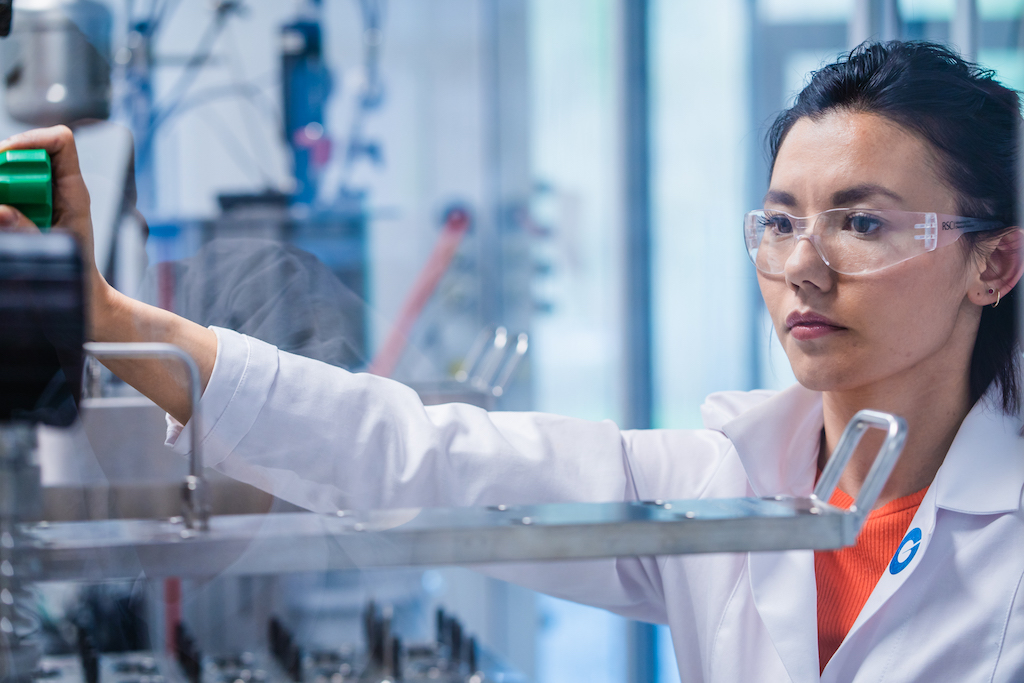3 Mins Read
Givaudan, the world’s biggest flavour and fragrance corporation, has placed alternative proteins at the centre of its growth strategy in the years ahead. Opening a new Protein Hub at its flagship Zurich Innovation Centre this week, the company says that it’ll be exploring everything from new plant-based ingredients to fermentation techniques.
Givaudan has just opened its brand new Protein Hub at its base in Zurich, Switzerland, which will be fully armed with “experts, technologies and equipment to help accelerate the development of alternative proteins”. The facility will feature a development kitchen, as well as pilot plant that includes a new high-moisture extrusion machine to test production of novel plant-based and fermentation-derived meat, dairy and seafood alternatives.

Exploring different alt-protein technologies
While Givaudan will continue to ramp up its plant-based innovation, building on from its already operational dedicated plant protein R&D centre with Bühler in Singapore, it’ll also be exploring other alt-protein technologies such as fermentation.
“Creating delicious alternatives for meat, fish or dairy – from plant-based to fermented products – comes with a unique set of challenges and requires a holistic approach,” shared the firm’s global head of science and technology Fabio Campanile.

Just last week, the ingredients and flavouring giant announced a partnership with Ginkgo Bioworks, the Boston startup with expertise in cell programming and fermentation, in a new multi-year collaboration to produce a series of fermentation-based sustainable ingredients.
“We realise that no one company can do this alone. We need to work together to address challenges, accelerate innovation and shape the future of food,” Campanile continued. “The Protein Hub provides the ideal environment to make that happen.”
It is unclear whether the collaboration with Ginkgo will be carried out at Givaudan’s new Protein Hub.
Alternative protein demand
The opening of Givaudan’s new Protein Hub comes as demand for alternative proteins reaches an all-time high. Consumers, now increasingly aware of sustainability, health and ethical concerns relating to animal-based foods, are actively reducing their meat and dairy intake with 42% of global shoppers now self-identifying as “flexitarians”. In the US alone, retail sales of plant-based foods grew double-digits to reach $7 billion in 2020.

“Around the world, many consumers are shifting to plant-based options and other alternatives for health and ethical reasons,” commented Givaudan Taste & Wellbeing president Louie D’Amico.
“The Protein Hub brings together customers, start-ups, academics, chefs and other partners to co-create protein experiences that not only taste great, but are good for body, mind and planet.”
According to the firm, customers are able to visit the new Protein Hub to develop novel applications for alt-proteins, as well as come up with fresh concepts for products. The Hub is designed to “get products to market quickly”, with easily accessible prototyping and piloting infrastructure.
Lead image courtesy of Pexels.




